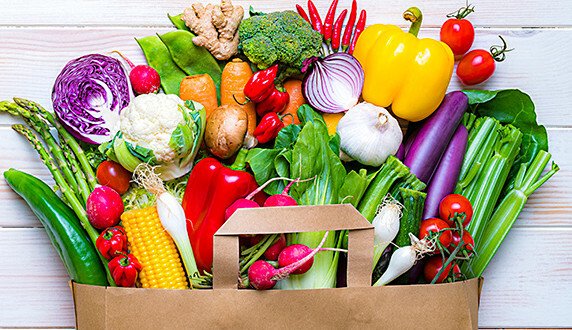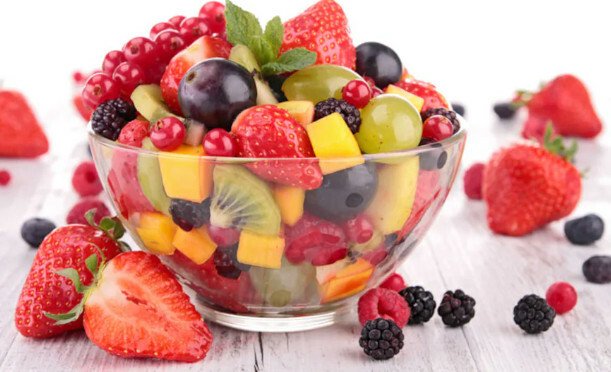|
Getting your Trinity Audio player ready...
|
We all know that we should be eating more fruits and vegetables, but do we understand why they’re so important? Vegetables and Fruits are some of the most nutrient-dense foods available to us, and they offer a wide range of health benefits. In this article, we’ll explore the importance of incorporating more of them into your meals.

What are fruits and vegetables?
Before we dive into the benefits of consuming these two, let’s define what we’re talking about. Fruits are the sweet and fleshy product of a tree or other plant, typically containing seeds. Apples, oranges, bananas, and grapes are just a few examples of fruits you can eat. Vegetables, on the other hand, are the edible parts of plants that are typically savoury and not sweet. Examples of vegetables include broccoli, spinach, carrots, and tomatoes.
The Benefits of Eating Fruits and Vegetables
Nutrient Density
These two are some of the most nutrient-dense foods available to us. This means that they provide a lot of nutrients relative to their calorie content. They’re packed with vitamins, minerals, Fibre, and other important nutrients that our bodies need to function properly. For example, oranges are high in vitamin C, which is important for immune function and wound healing. Spinach is high in iron, which is essential for healthy red blood cells. Carrots are high in vitamin A, which is important for vision and skin health.
Weight Management
Fruits and vegetables are also important for weight management. They’re low in calories and high in Fibre, which means that they can help us feel full and satisfied without consuming a lot of calories. By incorporating more fruits and vegetables into our diets, we can reduce our intake of higher-calorie foods, such as processed snacks and sugary drinks, which can contribute to weight gain.
Digestive Health
These two are rich in Fibre, which is important for digestive health. Fibre helps to keep our digestive system functioning properly, by promoting regular bowel movements and preventing constipation. Additionally, Fibre helps to feed the healthy bacteria in our gut, which is important for overall gut health and immune function.
Disease Prevention
Eating a diet rich in fruits and vegetables has been linked to a lower risk of chronic diseases, such as heart disease, diabetes, and certain types of cancer. This is because these two are high in antioxidants, which help to protect our cells from damage caused by free radicals. Free radicals are dangerous substances that can harm cells and result in chronic sicknesses. By consuming these two, we’re giving our bodies the nutrients they need to fight off this damage and stay healthy
Start Small
If you’re not used to eating a lot of fruits and vegetables, it can be overwhelming to try to incorporate them into every meal. Start small by adding a piece of fruit to your breakfast or a side salad to your lunch.
Tips on how to include Fruits and Vegetables in Your Diet
Experiment with Different Colors and Texture
They also come in a wide range of colours and textures, which can make meals more interesting and flavorful. Additionally, try to incorporate a variety of colours and textures into your meals, such as adding sliced bell peppers to a stir-fry or tossing berries into your yoghurt.
Try New Recipes
There are countless recipes available that incorporate fruits and vegetables into delicious meals. Look for recipes online or in cookbooks that feature your favourite fruits and vegetables, or try something completely new.
Make Snacks Easy
Snacking on fruits and vegetables throughout the day is a great way to increase your intake. Make snacking easy by keeping pre-cut fruits and vegetables on hand, such as carrot sticks, cucumber slices, or apple slices.
Get Creative with Preparation
More so ,there are many different ways to prepare them, which can make them more appealing to eat. Try grilling vegetables for a smoky flavour, roasting them for added sweetness, or blending them into smoothies for a quick and easy snack.
Make Them a Priority
Furthermore one of the best ways to ensure that you’re getting enough fruits and vegetables is to make them a priority in your diet. Aim to fill half of your plate with fruits and vegetables at each meal, and make sure to include them in snacks as well.
Conclusion
In conclusion, incorporating more vegetables and fruits into your diet is one of the best things you can do for your health. They’re packed with important nutrients that can help prevent chronic diseases, support weight management, and improve digestive health. By following these tips for incorporating more vegetables and fruits into your meals, you can start reaping the benefits of these nutritious foods today.



